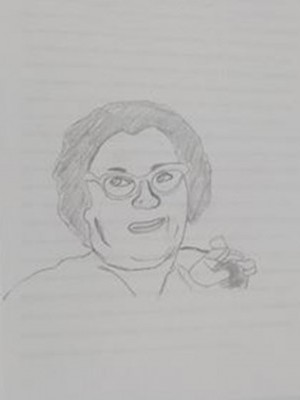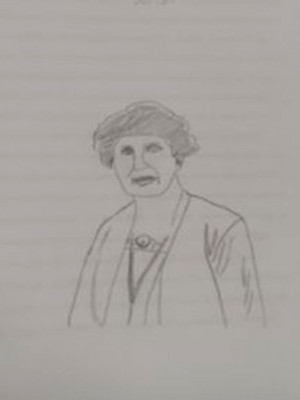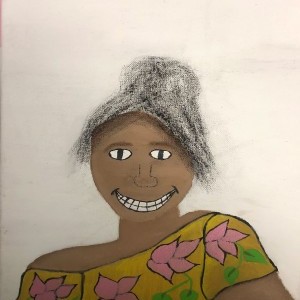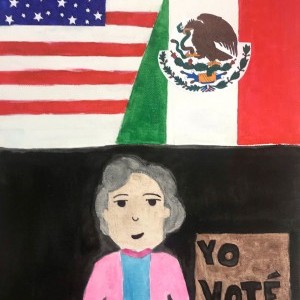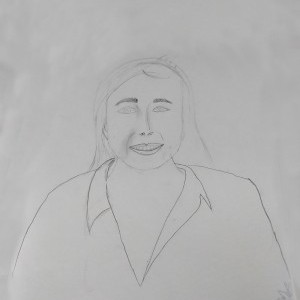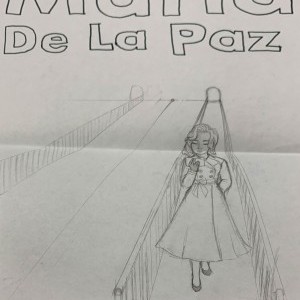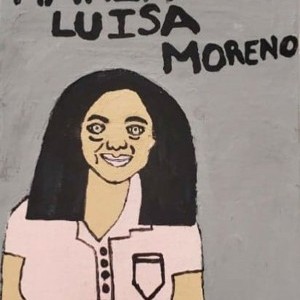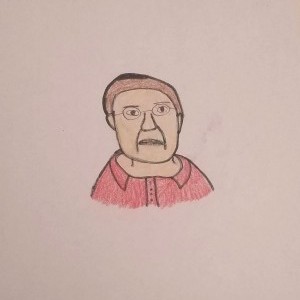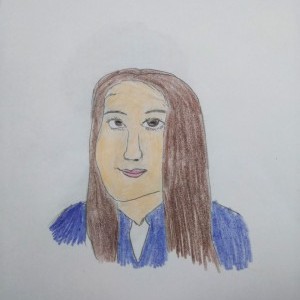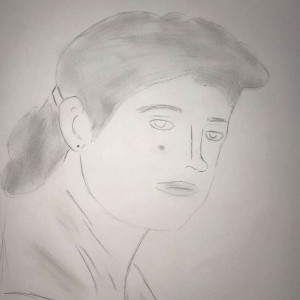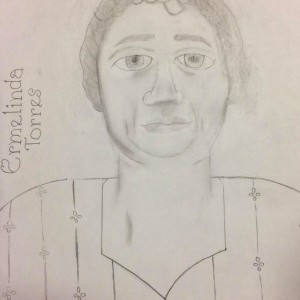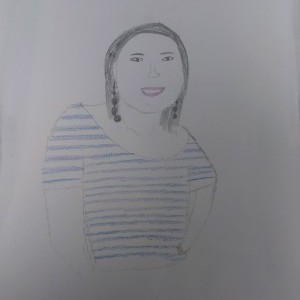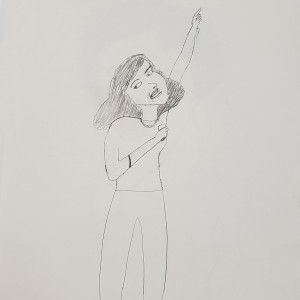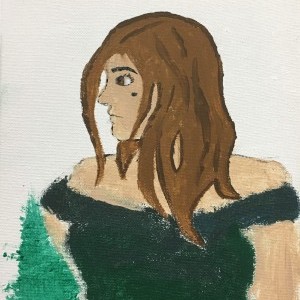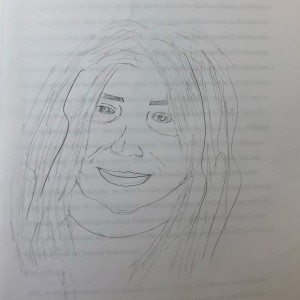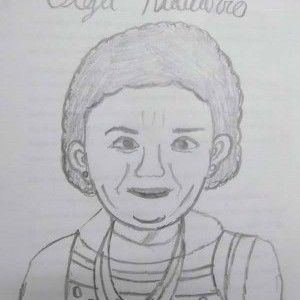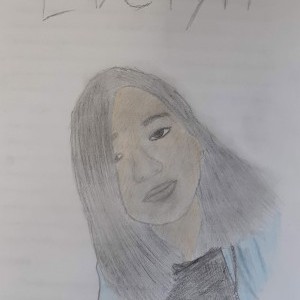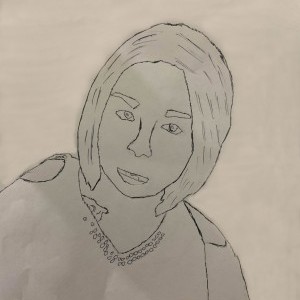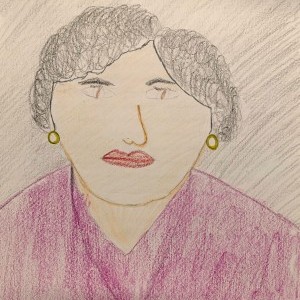Jacob Ramos
García Early College High School | Laredo, TX | 10th Grade
Inspirational Family Member
My Grandmother
I had decided to interview my grandmother as she was aware of her mother's right to vote. Unlike most women of her time, my great-grandmother was a strong independent woman and wasn't soft spoken to others. She swore endlessly, and her stubbornness would ultimately bring about an air of strong will.
In the Azteca neighborhood where I have grown up, she explains how her mother saw it grow from ranch land, to a town, and finally, a city. She had a job earlier on as a law firm secretary and had the first home-installed telephone in the neighborhood. My great-grandmother had started to develop a behavior like that of a delinquent. She felt that as a woman, she could do even a men's habit better. This turned out to be true as she assembled a machine called a distillation unit. I found this machine in the basement and asked my mother what is was. Her response astounded me during our interview as she told me it was an alcohol distilling machine. My great-grandmother turned out to be a Bootlegger or Moonshiner as illegal alcohol producers would be referred to commonly back in her time. From there both my mother and grandmother explained that my great-grandmother stirred up a restaurant-esque business and would sell the ILLEGAL home-brewed beer to, rather ironically, lawyers, officers, and even city council officials.
It is hard to imagine that on August 23, 1932, she would have two kind children named Hilda and Jorge Granados. Unfortunately, she had already been widowed by then and was forced to take care of her newborns alone with the income of her small “business” income alone and her questionable salary as a law firm secretary. My grandma, Hilda Granados, would later show the same signs and follow in her footsteps concerning the independency and the decision to partake in voting. My great-grandmother's pride, not just as a woman, would indirectly influence her future decisions, such as signing up my Uncle Jorge Granados to the United States Marine Corps. Although that may not seem so big of deal, my mother and grandmother's interview would unveil a lot of its weight and meaning.
Historical Figure I Admire
Margaret Llewelyn Davies
Margaret Lewellyn Davies was born in 1861 (no specific date) at Kirkby Lonsdale, Westmorland and was influenced by her father, a Trinity college graduate, women's rights supporter, and Christian socialist. Her upbringing was rather unusual for a child as much of her family was involved with different kinds of movements, most of which were radical-intellectual movements. Her father though, although involved in other movements, would influence her with the help of other relatives by instilling in her an opposition to poverty and inequality. The focus though would be of course women's suffrage.
After attending Girton College in Cambridge, she started to involve herself in specific causes. This involvement would earn her a place in the Women's Co-operative Guild or WCG. For the next thirty-two years she held the position of general secretary. The Guild, under her leadership, would become more active in the battle for women's rights. Her first and most notable act as the Guild's leader was her insight into the working conditions of over 2000 women in co-operative stores. Co-operative stores are business were consumer-customer share profits with a patronage dividend. Stores are then supplied to fulfill both sides’ profits whether it be social, economic, or cultural. However, women were paid below minimum wage even in these stores. This would change with Davies' decision to investigate the methods that were used for the working women. With her help, the WCG would introduce a minimum wage. Her tenure affected the members so much that an author by the name of Katherine Webb, born April 29, 1986, would write a book named 'The Woman with the Basket'. The Guild wasn't the only group she involved herself with. She would write an influential book on childbirth and rearing named Maternity: ‘Letters from Working Women’ before joining the society for Cultural Relations to help support the Russian revolution during the times of the U.S.S.R (1924-28). Afterwards she would pass away in 1944 in Dorking, United kingdom.
What the Project Means to Me
My reflection of what I believe to be a revolution in my family's legacy of prodigies and leaders is that this change caused a ripple effect in its history. The strong women born from my great-grandmother would only add to the long line. At first, I couldn't understand why the right to vote would be so important, now having learned the ripple it caused in my current guardians is eye opening. The chance for 2 of the strongest women I've ever met to vote and actively shape the environment I will experience in my youth is truly a blessing. Both understand that the rules of their time can't be applied to the modern world without something going wrong. With that wisdom being given the chance to present itself I could understand exactly how heavy the power to vote truly is, when my grandmother spoke of her first voting experience when president Jimmy Carter was campaigning.
Leaders such as Carter may not have been in our history if it hadn't been for the actions taken by Suffragettes such as Margaret Lewellyn Davies and, of course, women like my great-grandmother. These interviews showed me the perspectives of women during the 1900s and the devotion they had to the causes for justice over the inequality in their society. Despite my disagreements with modern day feminism, I do believe that there is an unfair judgement over what women can do. However, thanks to the efforts of those who came before me in my line, and the acts of countless others, that truth is now slowly coming to light
Explore the Archive
More From This Class
Click on the thumbnails below to view each student's work.Deadline Extended
There's still time to join Women Leading the Way.
Become a part of our storytelling archive. Enroll your class today.
Join the Project

